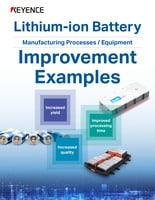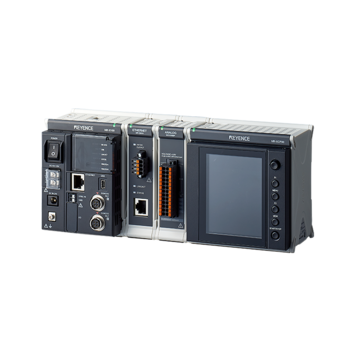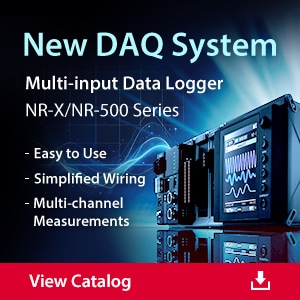Data Acquisition (DAQ)
Evaluation Testing of Lithium-Ion Batteries
Lithium-ion batteries are everywhere these days, including in laptops, headphones, watches, smartphones, data loggers and even electric vehicles. However, these batteries are produced using volatile chemicals and elements. Their rampant availability underscores the importance of testing their safety, performance, and longevity.
In fact, since they’re becoming increasingly integral to various applications, rigorous lithium-ion battery testing methods have become essential to meeting the ever-growing demand for reliable and efficient energy storage solutions.
Challenges in Evaluation Testing for Lithium-Ion Batteries
Testing Lithium batteries isn’t as simple as taking a multimeter and reading their values. Itactually comes with its own set of challenges that stem from the complex nature of their chemistry and performance characteristics.
One of the primary challenges associated with Lithium-Ion battery testing is testing accuracy and consistency. This is especially important because Lithium-ion batteries, like all other batteries, are very sensitive to various factors and external influences, like:
- Temperature
- Charge/discharge rates
- Cycle counts
Small variations in these parameters can lead to significant differences in battery performance and lifespan, and noting these variations is crucial in maintaining controlled and repeatable test conditions.
Predicting long-term performance is yet another challenge. These batteries are expected to last for several years, but testing each cell for the duration of its entire lifespan is widely impractical. That’s why engineers use accelerated aging tests, which simulate long-term use in shorter periods.
However, designing these tests and running them under real-world conditions often introduce additional stress factors, and mitigating these factors is also a challenge in its own right. Lastly, there’s a matter of safety. These batteries often carry risks such as thermal runaway, which leads to fires and explosions, so all Lithium-Ion battery testing protocols must include rigorous safety measures.
We’re here to provide you with more details.
Reach out today!

Key Performance Metrics for Lithium-Ion Batteries
Several key performance metrics are measured to effectively test Lithium-Ion batteries since they provide a more comprehensive insight into capabilities, weaknesses, and the overall state of cells.
- Capacity: Capacity refers to the amount of charge a battery can store, and it is typically measured in ampere-hours (Ah, mAh). This type of lithium-ion battery testing involves charging and discharging the battery under controlled conditions to assess and determine its capacity.
- Cycle Life: This metric refers to the number of complete charge-discharge cycles a battery completes before its capacity falls below the manufacturer-specified threshold. It is critical for applications that demand long-term reliability.
- Energy Density: Energy density refers to the amount of energy a Lithium-ion battery can store per unit of volume or weight, and it’s measured in watt-hours per kilogram or watt-hours per liter. High-density batteries are particularly important for portable and space-constricted applications.
- Internal Resistance: This metric represents the electrical resistance within the battery, which causes energy loss during charge/discharge cycles. Lower internal resistance signals higher efficiency and better performance.
- Safety and Stability: Lithium-ion battery evaluation testing often involves evaluating the battery’s behavior under extreme conditions, including overcharging, short-circuiting, and exposure to high thermals. Using a multi-input data logger here is paramount when it comes to preventing hazardous situations.
Integration of Data Acquisition Systems in Lithium-Ion Battery Performance Evaluation
The integration of data acquisition systems in Lithium-Ion battery testing plays a crucial role in enabling real-time data collection from various sensors and testing equipment. This helps in analyzing and storing the data but also facilitates more accurate and efficient testing processes. The use of such systems is necessary for ensuring the long-term reliability and safety of Lithium-ion batteries in various applications.
KEYENCE is the world’s leading provider of precision technologies, including data acquisition systems that can be used in Lithium-Ion battery testing. If you’re interested in learning about potential integrations, don’t hesitate to contact KEYENCE today.
Contact us to learn more about how our advanced technology can help take your business to the next level.
Contact Us



